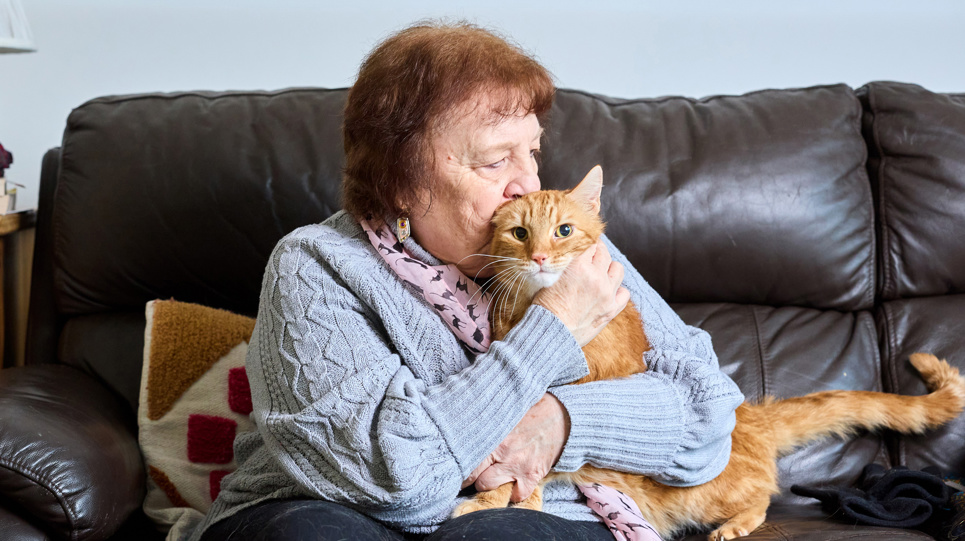We welcome pets
All of our schemes are pet friendly, although we do have a policy in place to ensure the welfare of the animal, as well as you, your neighbours, our employees and any visitors.
If you are thinking of getting a pet, please speak with your local manager in the first instance and check your Court Service Agreement which will outline any information specific to your property.
"I was delighted to find a lovely place to live, where I could take my cats. I don't have any family, so my cats mean the world to me. We are all very happy living with Housing 21, it is a very friendly and lovely place to live."
Meghan, Extra Care resident


